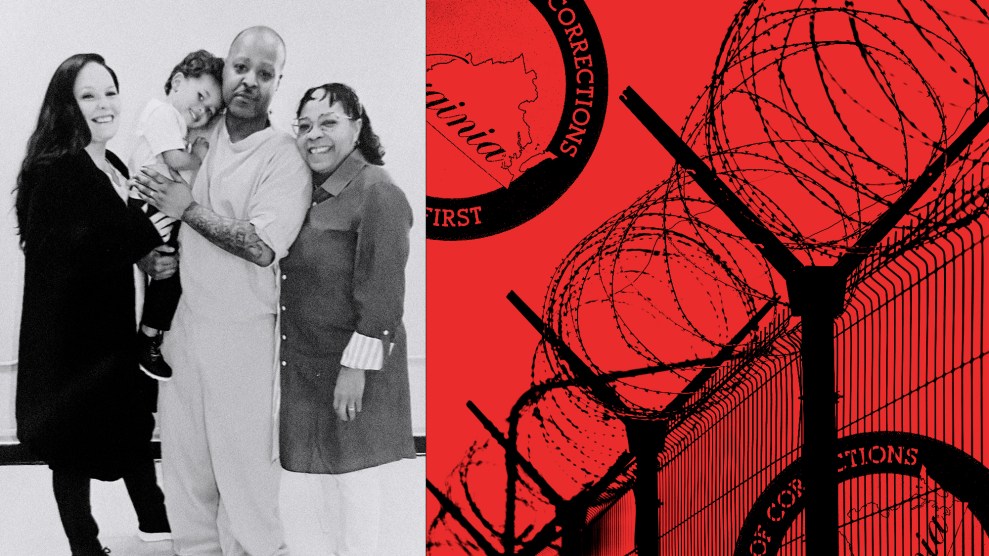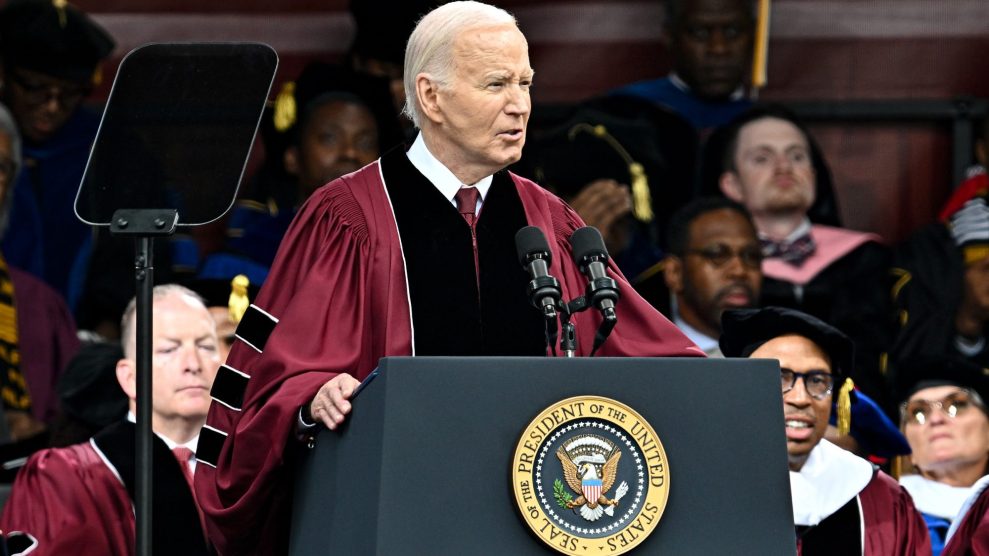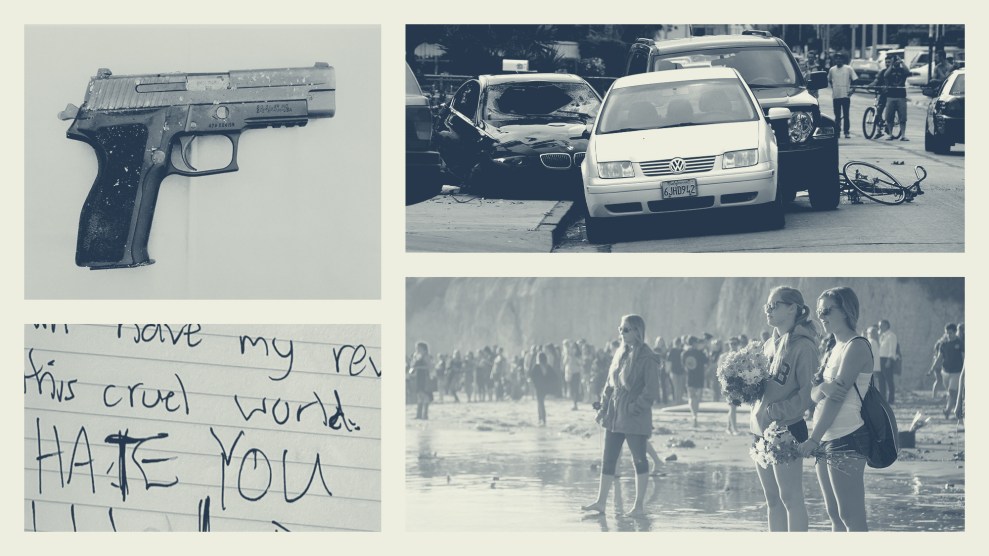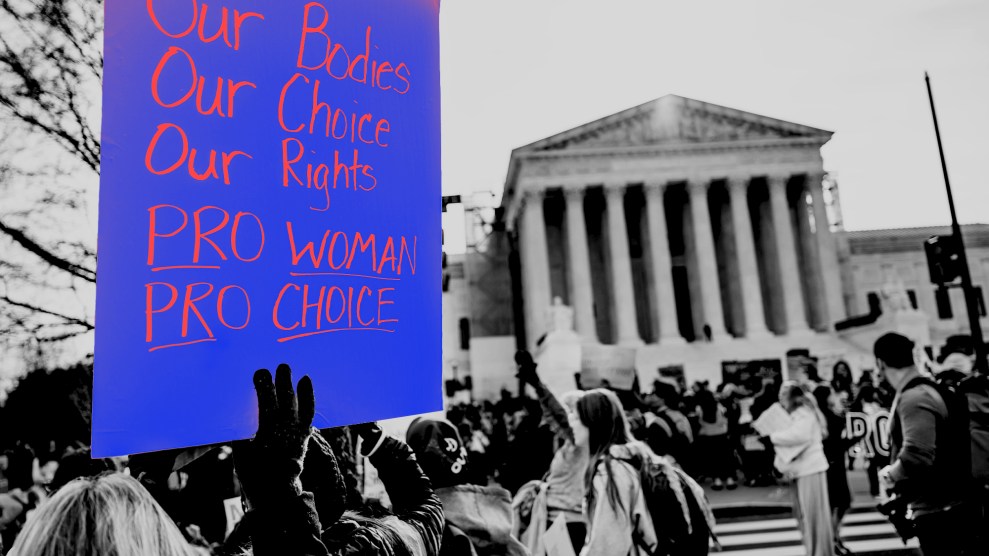You have to flip all the way to page A14 of Thursday’s Washington Post to find breaking news about Abu Ghraib. During a preliminary court hearing for Pfc. Lynndie England, a prison staffer testified that military intelligence officials had ordered prisoners to be kept out of sight from the Red Cross.
Recall that two months ago, at a press conference, Donald Rumsfeld played dumb when asked about detainees kept away from monitors:
Q: But then why wasn’t the — why wasn’t the Red Cross told, and there are other such prisoners being detained without the knowledge of the Red Cross?
SEC. RUMSFELD: There are — there are instances where that occurs. And a request was made to do that, and we did.
But according to Staff Sgt. Christopher Ward, detainees were willfully kept out of sight when the Red Cross came to visit. That doesn’t sound like “instances.” That sounds like a systematic problem. Newsweek sounded more bad news for Rumsfeld, after learning that the Defense Secretary’s hand-picked investigative panel, headed by James Schlesinger, is expected to blame top Pentagon officials, including Rumsfeld himself, for the conditions at Abu Ghraib. The report, due out on August 18, will likely point out “that Rumsfeld and senior officials failed early on to set up clear, baseline rules for interrogations.”
Newsweek‘s revelations aside, it’s been difficult to get any genuine updates on the torture story. Across the Atlantic, Scotland’s Sunday Herald recently discovered that there are up to 107 child prisoners being held in Iraq, according to a UNICEF report that has not been made public. (Last month, IRIN made similar allegations, complaining that human rights groups have not been allowed to see child detainees.) The Herald also chronicled some absolutely sickening evidence for child torture in Abu Ghraib:
It was early last October that Kasim Mehaddi Hilas says he witnessed the rape of a boy prisoner aged about 15 in the notorious Abu Ghraib prison in Iraq. “The kid was hurting very bad and they covered all the doors with sheets,” he said in a statement given to investigators probing prisoner abuse in Abu Ghraib. “Then, when I heard the screaming I climbed the door … and I saw [the soldier’s name is deleted] who was wearing a military uniform.” Hilas, who was himself threatened with being sexually assaulted in Abu Graib, then describes in horrific detail how the soldier raped “the little kid”.
Meanwhile, Rolling Stone got its hands on the classified annexes to the prison report by Maj. Gen. Antonio Taguba. The annexes accuse high-ranking military officials of setting conditions for torture in Abu Ghraib. In particular, Maj. Gen. Geoffrey Miller, who currently runs all of the prisons in Iraq, was sent to Abu Ghraib in order to speed up the intelligence-gathering process. Miller recommended that the jailers should become “actively engaged in setting the conditions for successful exploitation of the internees.” The end result was entirely predictable:
A former Army intelligence officer tells Rolling Stone that the intent of Miller’s report was clear to everyone involved: “It means treat the detainees like shit until they will sell their mother for a blanket, some food without bugs in it and some sleep.”
The Rolling Stone story is deeply disturbing. Worse, perhaps, was the recent admission by senior Army criminal investigators, that the abused inmates had “little or no intelligence value to the United States.”
Finally, in another shocking story buried deep in the back pages, the Washington Post noted that CACI International recently won a $23 million interrogation contract with the Army. CACI, recall, is facing a federal lawsuit from the Center for Constitutional Rights, which has alleged that the contractors engaged in an intentional “scheme to torture, rape, and in some instances summarily execute plaintiffs.” Obviously the Army has a right to hire whoever it thinks will do the best job, but at a time when our popularity in the Middle East is perilously low, is this the really best idea? Is this what President Bush meant when he announced, “People will be brought to justice”?
So many stories; where is our media? We shouldn’t have to rely on a Scottish newspaper and a music magazine to get the inside dirt on child torture. Reporters need to wake up. Already, the scandal is fading fast from our collective memory. When the Office of the Inspector General’s report came out, blaming the abuses on a few individuals, both the New York Times and the Washington Post admirably accused the Army of a cover-up. But after that, there was little follow-up.
American Journalism Review has an interesting write-up of why the American media has been so slow to break Abu Ghraib. Until the big stories by Seymour Hersh in The New Yorker, along with the first wave of pictures from CBS, journalists had reported almost nothing on the incident. AJR lists several possible reasons for the failure: lack of resources, the difficulties of reporting in Iraq, reporters worried about “liberal media” charges, stonewalling by the White House.
But for whatever reason, the major print media failed to put the pieces together. At most, newspapers would print little snippets about torture allegations and prison investigations, deep in their back pages. No one thought to connect the dots, until Seymour Hersh did. Now, more snippets are emerging, about the torture of children, about the concealment of prisoners, about cover-ups and whitewashes. How long will this new stretch of silence last?















